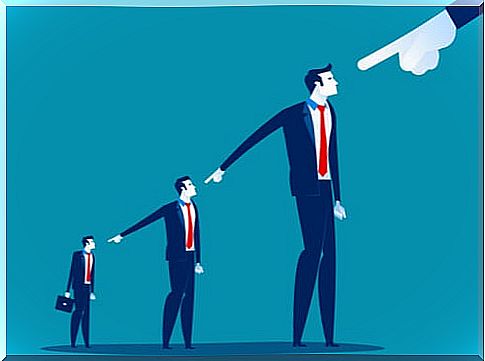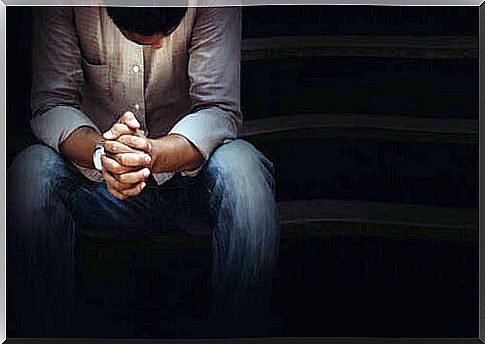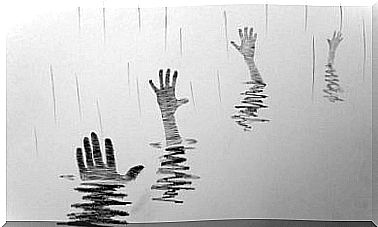Blaming Others As A Strategy

Blaming others is a resource that children turn to frequently. Their cognitive and moral development prevents them from understanding the importance of taking responsibility for their actions and rather they choose to avoid punishment when they know they have acted badly. However, there are also many adults who continue to show this type of behavior in different situations.
Blaming others first becomes a habit and then a strategy, in people who have a high degree of narcissism or lack of autonomy. This behavior supposes a stagnation in the evolution of emotions and values. Whoever acts in this way suffers and also makes those around them suffer.
The most common is that behind this pattern of blaming others there is fear , repressed anger and sadness. And as long as healthier strategies are not chosen in relationships with others, such feelings will remain and even become more intense. For this reason, it is not an effective strategy, but on the contrary, it multiplies the difficulties.

The reasons for blaming others
Generally speaking, there are two big reasons why some people choose to blame others as a coping strategy.
The first is narcissism and the second is lack of autonomy. We can think that these two aspects are exclusive, but they are not. In fact, it is very common that they go together.
It is very common for a person to develop excessive narcissism as compensation for a feeling of inferiority. There is a paradox. The person believes that he should be loved or recognized, but does not do what is necessary to get that love or that recognition. Despite this, it bothers him not to get it. Finally he decides to blame others for everything he does not achieve.
The second reason this strategy is used is due to lack of autonomy. As in the child, there is a lot of dependence on authority and fear of punishment . Then others are blamed for avoiding this bad time, but doing so increases dependency and prevents the development of a sense of responsibility.
What is gained by blaming others?
Blaming others does generate some apparent gains. The first one, that the ego remains intact. By making a mistake and acknowledging it, one is implicitly declaring that one is imperfect and therefore not always right. When there is no humility, this is a wound that some egos do not tolerate.
Difficulty accepting mistakes is not the result of excess love for oneself, but of great insecurity. Some people think that making a mistake takes away their worth, or calls into question their abilities or merits. If, on the other hand, there is security in what one is, an error or a mistake is seen as normal and is approached as sources of learning.
Other times it is chosen to blame others because in this way the consequences of the acts are evaded and the price of the error itself is not paid. It is a childish way of avoiding both responsibility and guilt. Whoever acts like this hides from himself and loses the opportunity to learn from mistakes, strengthen himself and grow.

What is lost with this strategy
Who systematically blames others for their mistakes, their sufferings and their shortcomings, causes harm and causes harm to others. The first thing it achieves is to subtract authenticity and frankness from relationships. Under these conditions it is very difficult to build healthy relationships, but, on the contrary, what is promoted are toxic relationships.
One of the most valuable aspects of life is precisely building genuine intimacy with other people. These provide security, strengthen identity and nurture courage. The artificial links or those marked by manipulation only generate the feeling of being more alone in the face of a more threatening world.
On the other hand, those who give up assuming their responsibilities also give up growing, while preventing themselves from learning from mistakes. This stagnation ends up influencing emotions and distorts the perception of reality. Eventually it only ends up feeding a paranoid and harmful posture.
The antidote to this tendency to blame others is humility. Unlike what many believe, learning to take responsibility for the consequences of one’s actions, mistakes and mistakes is something that does not weaken, but rather strengthens and promotes individual evolution.









